Sophos Acquires Capsule8 to Bring Powerful and Lightweight Linux Server and Cloud Container Security
By MYBRANDBOOK
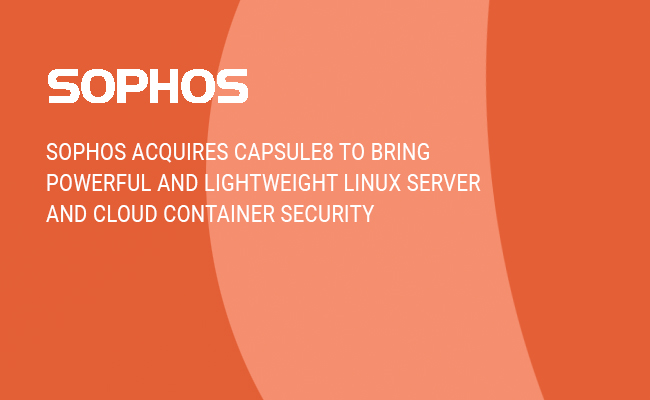
Sophos, a global leader in next-generation cybersecurity, today announced that it has acquired Capsule8, a pioneer and market leader of runtime visibility, detection and response for Linux production servers and containers covering on-premise and cloud workloads. Founded in 2016, Capsule8 is privately held and headquartered in New York, NY.
“Sophos already protects more than two million servers for over 85,000 customers worldwide, and the Sophos server security business is growing at more than 20% per year,” said Dan Schiappa, chief product officer, Sophos. “Comprehensive server protection is a crucial component of any effective cybersecurity strategy that organizations of all sizes are increasingly focused on, especially as more workloads move to the cloud. With Capsule8, Sophos is delivering advanced, differentiated solutions to protect server environments, and expanding its position as a leading global cybersecurity provider.”
Capsule8 is dedicated solely to the development of Linux security and has established itself as a technology and thought leader in the market, with marquis customer wins and billings growth of 77% in the year to March 31, 2021. Driven by the dramatic growth in cloud platforms, Linux has become the dominant operating system for server workloads. Capsule8’s high-performance, low-impact design is ideal for Linux servers, especially those used for high-scale workloads, production infrastructure and storing critical business data.
"The main idea behind Capsule8 is that providing enterprise-grade security for Linux systems requires deploying components that are designed specifically for that environment. These components are more adept at making the trade-offs between security and performance when needed, to achieve the desired levels of resilience and protection,” said Fernando Montenegro, principal research analyst with 451 Research, part of S&P Global Market Intelligence, in reference to Capsule8’s solutions.[1] "As organizations move to embrace concepts such as cloud-based delivery and DevOps, the underlying compute environments shift noticeably toward Linux as a frequent execution environment. For security teams, often more familiar with Windows-centric concepts, this represents a potential challenge – there are different demands, concepts and practices for Linux. This is the space that Capsule8 aims to address with its endpoint security offering, combining an architecture optimized for Linux with more features aimed at enterprise security and IT operations teams."
Sophos is integrating Capsule8 technology into its recently launched Adaptive Cybersecurity Ecosystem (ACE), providing powerful and lightweight Linux server and cloud container security within this open platform. Sophos will also feature Capsule8 technology in its Extended Detection and Response (XDR) solutions, Intercept X server protection products, and Sophos Managed Threat Response (MTR) and Rapid Response services. This will further expand and enhance Sophos’ data lake and deliver continuous, fresh intelligence for advanced threat hunting, security operations and customer protection practices.
“Capsule8 is the premiere purpose-built detection and response platform for Linux. We provide security teams with the crucial visibility they need to protect Linux production infrastructure against unwanted behavior, while at the same time addressing cost, performance and reliability concerns,” said John Viega, CEO, Capsule8. “We’ve innovated new approaches to deliver runtime security in a much safer and more cost-effective way than anyone else in the industry. With Capsule8’s technology, organizations are no longer forced to choose between system stability and security risk. Given the growth and mission-critical nature of Linux environments, and the fast-changing, targeted threat landscape, organizations must be confident that their Linux environments are both performant and secure.”
SophosLabs threat intelligence reveals that adversaries are designing tactics, techniques and procedures (TTPs) aimed specifically at Linux systems, often exploiting server software as an initial entry point. After gaining a foothold, attackers commonly deploy scripts to perform further automated actions. These could include:
· Dropping Secure Shell protocol (SSH) keys to gain direct access
· Attempting to remove existing security services
· Disabling Mandatory Access Control (MAC) frameworks, such as AppArmor and SELinux
· Adjusting or disabling server firewall rules (iptables)
· Installing post-exploit malware and configuration files
· Moving laterally via existing infrastructure with living off the land tools, such as SSH, Chef, Ansible, Salt, and Puppet
Adversaries use compromised Linux servers as cryptomining botnets or as a high-end infrastructure for launching attacks on other platforms, such as hosting malicious websites or sending malicious emails. Given that Linux servers often hold valuable data, attackers also target them for data theft and ransomware.
“Attackers today are incredibly aggressive and nimble as they adapt their TTPs to focus on the easiest, largest or fastest-growing opportunities. As more organizations shift to Linux servers, adversaries have noticed, and they are adapting and customizing their approaches to attack these systems. To stay protected, organizations must factor in a strong, but lightweight layer of Linux security that automatically integrates and shares intelligence with endpoint, network and other security layers and platforms within an estate,” said Schiappa. “We will provide this industry-leading capability and strategically important visibility and detection by combining Capsule8 with our Adaptive Cybersecurity Ecosystem products and services, greatly enhancing the ability to find and eliminate suspicious activity before it becomes malicious.”
Sophos expects to begin early access programs with its products and services leveraging the Capsule8 technology later this fiscal year.


Nazara and ONDC set to transform in-game monetization with ‘
Nazara Technologies has teamed up with the Open Network for Digital Comme...

Jio Platforms and NICSI to offer cloud services to government
In a collaborative initiative, the National Informatics Centre Services In...
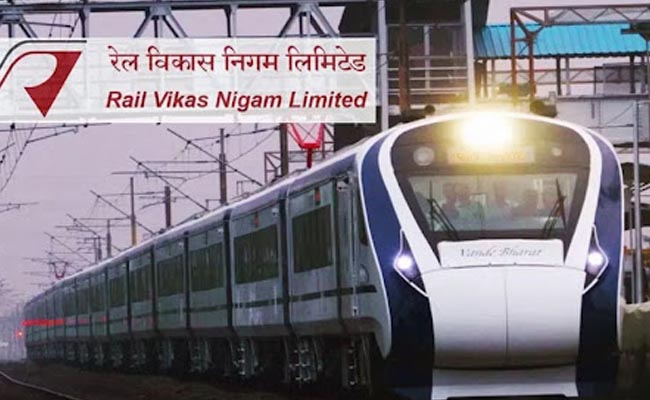
BSNL awards ₹5,000 Cr Project to RVNL-Led Consortium
A syndicate led by Rail Vikas Nigam Limited (abbreviated as RVNL), along wi...
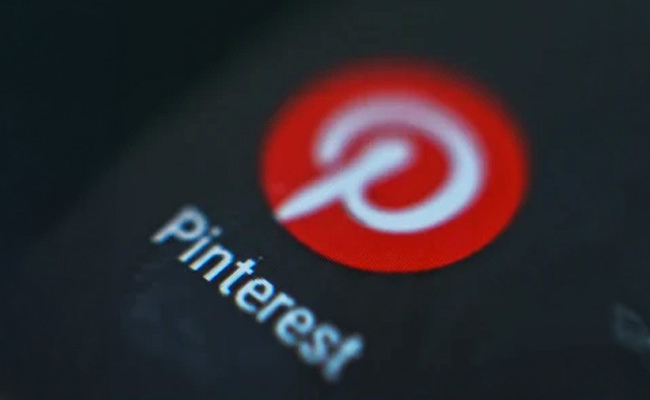
Pinterest tracks users without consent, alleges complaint
A recent complaint alleges that Pinterest, the popular image-sharing platf...


Icons Of India : MADHABI PURI BUCH
Madhabi Puri Buch is the first-female chairperson of India’s markets...

Icons Of India : ASHISH KUMAR CHAUHAN
Ashish kumar Chauhan, an Indian business executive and administrator, ...
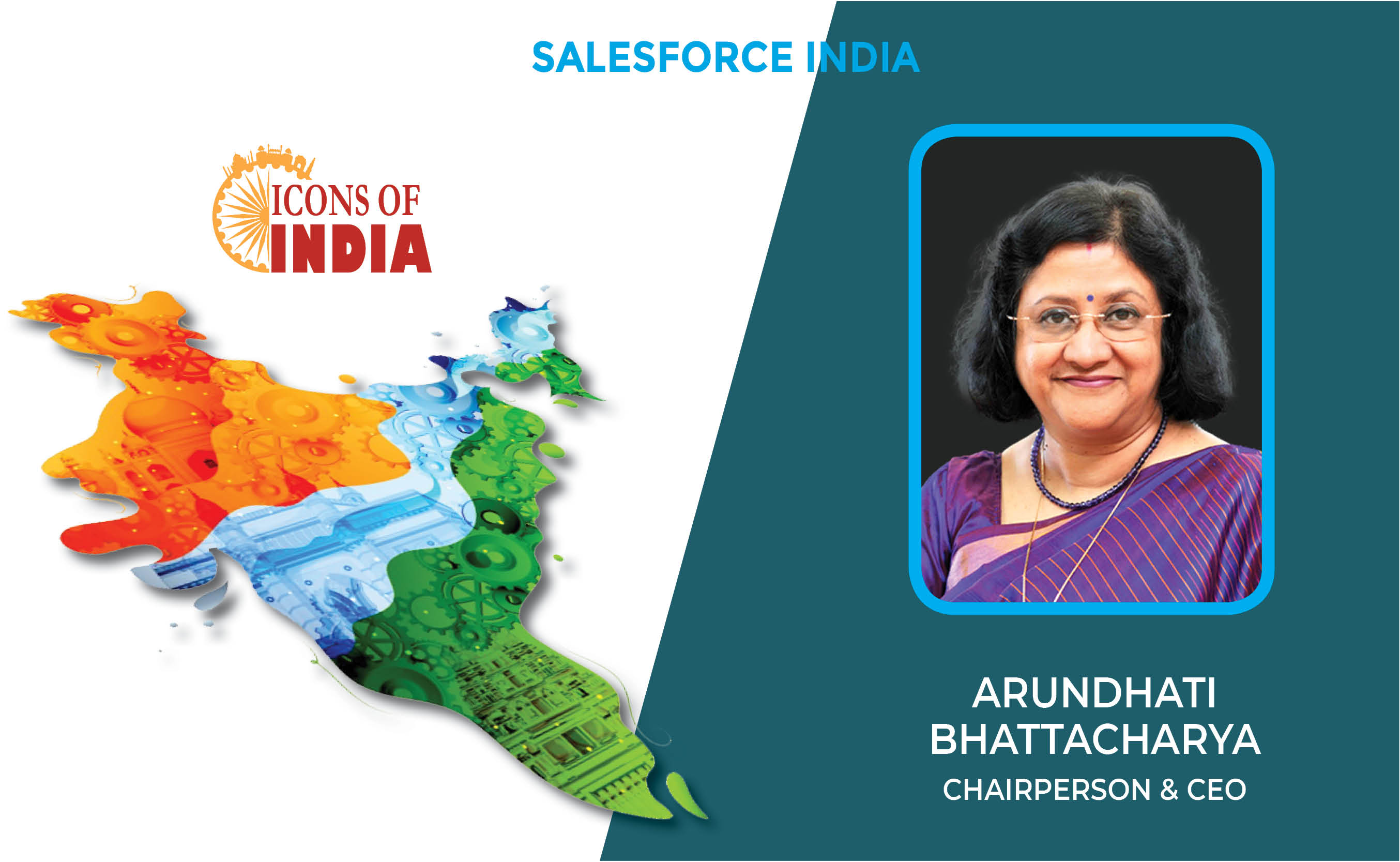
Icons Of India : Arundhati Bhattacharya
Arundhati Bhattacharya serves as the Chairperson and CEO of Salesforce...

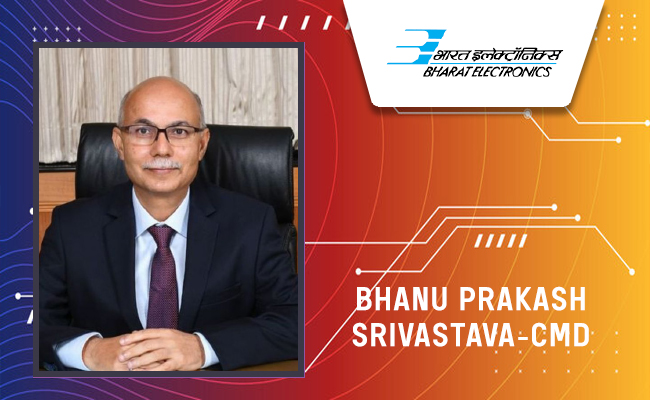
BEL - Bharat Electronics Limited
BEL is an Indian Government-owned aerospace and defence electronics co...

PFC - Power Finance Corporation Ltd
PFC is a leading financial institution in India specializing in power ...
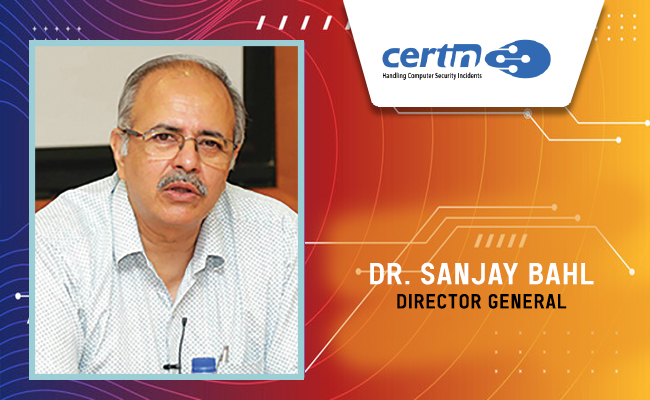
CERT-IN - Indian Computer Emergency Response Team
CERT-In is a national nodal agency for responding to computer security...

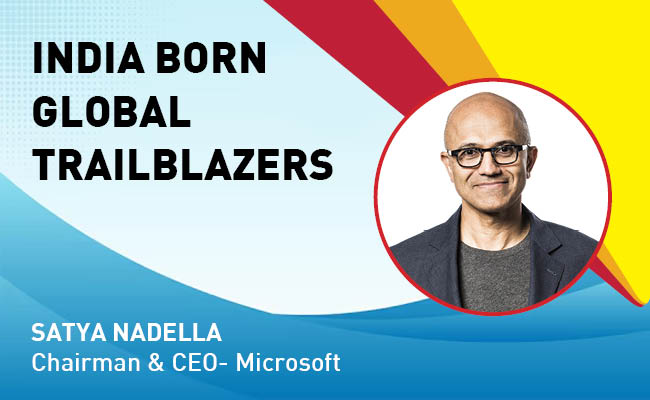
Indian Tech Talent Excelling The Tech World - Satya Nadella, Chairman & CEO- Microsoft
Satya Nadella, the Chairman and CEO of Microsoft, recently emphasized ...
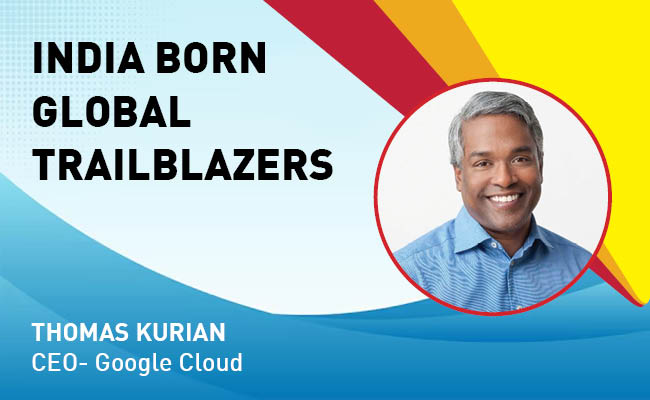
Indian Tech Talent Excelling The Tech World - Thomas Kurian, CEO- Google Cloud
Thomas Kurian, the CEO of Google Cloud, has been instrumental in expan...
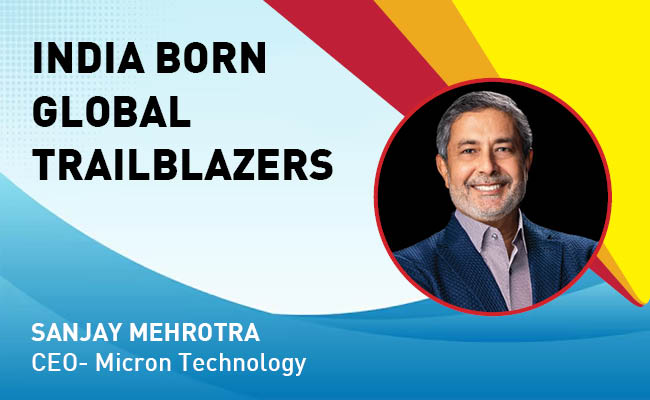
Indian Tech Talent Excelling The Tech World - Sanjay Mehrotra, CEO- Micron Technology
Sanjay Mehrotra, the President and CEO of Micron Technology, is at the...